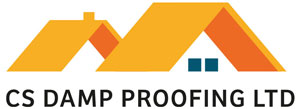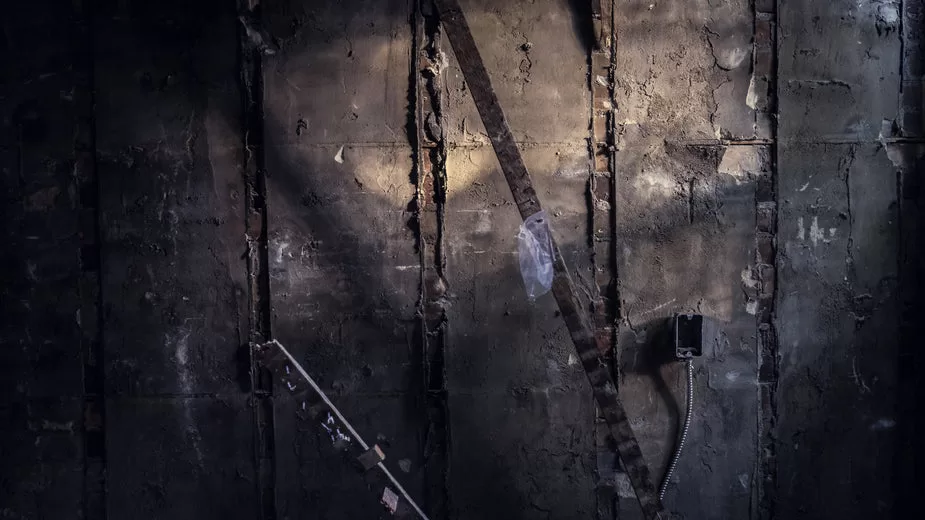Of all the problems your home could face, structural damp is one of the worst. It has the capability to damage the building as well as harm its occupants. If you suspect your home has a damp problem, you’ll immediately be faced with terms such as ‘damp proofing’ or ‘damp-proof course’. But what do they all mean?
In this article, the experts at CS Damp Proofing will explain these terms and answer some of your first questions, such as what is damp proofing and what is a damp-proof course.
What Is a Damp-Proof Course?
Before you can consider which option is right to protect your home from damp, it’s important to understand some key terms surrounding damp and damp proofing. If your home is plagued by damp, you’ll be advised to invest in a damp-proof course.
What is a damp-proof course you may ask. A damp-proof course or damp course is a layer of material that’s installed in a building with the purpose of stopping water from entering and travelling through a building’s masonry. The process of having a damp-proof course installed is called damp-proofing. As we’ll explain later, a damp-proof course can take the form of several different methods and materials, all with the purpose of preventing water from entering and damaging your walls, floors, roof, and interior decoration.
What Does a Damp-Proof Course Involve?
Once you have a general understanding of what is a damp course, you’ll want to know what they entail. A damp-proof course serves as a barrier to prevent the movement of water. There are several types of damp-proof courses on the market, and each involves different methods of installation:
- Damp-proof membrane: Installation requires exposing the foundation of the building and installing the membrane between the ground and the masonry.
- Chemical damp-proof course: Installation involves drilling holes near the base of the building and injecting a water-repelling chemical. This method is often used where installing a membrane would be very expensive or labour intensive.
- Electro-osmosis damp-proof course: Installation of copper wires before generating a small electric charge that will reverse the direction of water flow towards the ground. This method is often applied to older buildings or walls filled with rubble.
- Cavity wall damp-proof course: Installing an outer cavity wall, which will absorb moisture from outside and protect the interior wall. This method serves a dual purpose with insulation.
- Pressure grouting: This method uses grout, made from sand or cement, to fill cracks in the walls of a building.
- Integral damp-proofing: During the construction phase of a building, chemicals or materials can be mixed into the cement to either repel water or make the building material less porous so that water can’t be absorbed.
Do You Get a Certificate for Damp Proofing?
Once damp-proofing repairs have been completed, it’s common practice to receive documentation to this effect. This documentation will be useful when buying or selling a house, as proof that there is an up-to-date damp-proof course installed can affect a property’s value.
What Is the Difference between Damp-Proof Course and Waterproofing?
When asking the question what is damp proofing, it’s very easy to confuse the answer with waterproofing. Indeed, both serve the same purpose of preventing water from entering your home and causing damage.
However, waterproofing uses materials that act as a sealant on the surface of building materials, whereas damp-proof courses can penetrate the building material and fill its pores. Damp-proofing is considered the better solution against small amounts of water, such as groundwater or water vapour. But if your home is prone to flooding, waterproofing is considered the better option.
What Is a Damp-Proof Membrane?
A damp-proof course can take many forms and different installation methods, depending on your preferences and the needs of your home. However, the most common method of damp proofing is installing a damp-proof membrane. A damp-proof membrane is a sheet of material that’s installed at the base of a building. Typically made from plastic, namely polyethylene or high-density polyethylene (HDPE), other materials can be used. According to UK regulations, a damp-proof membrane must measure 1,200 gauge in order to effectively block moisture. These membranes typically have a lifespan of at least thirty years.
The need to install a damp-proof membrane is often the result of one of two situations. The current damp-proof membrane is damaged and in need of replacement or repair, or there is no damp-proof membrane currently installed in the building. The second scenario is very common in older buildings, before the installation of a damp-proof course was a standard practice.
Answering the question what is a damp-proof membrane also requires us to look at the installation process. Installing a damp-proof membrane first involves clearing away soil to expose the foundation of the building. After conducting measurements, the membrane must be installed no lower than 150mm from the base of the house, usually beneath a slab of concrete. During installation, it’s crucial to ensure that the membrane is smooth, and has not trapped any air bubbles. Following installation, the soil can be replaced, and the homeowner can conduct necessary repairs to restore the building.
Installing a damp-proof membrane is one of the more common damp-proofing methods. Depending on the house, installation can be seamless, and because of its flexibility, the damp-proof membrane won’t suffer damage in the event of shifting. However, it cannot be emphasised enough that you should employ the expertise of a damp-proofing expert to conduct the installation. Installing the membrane yourself or using a non-expert can result in serious damage.
Contact CS Damp Proofing
The best way to determine whether your property has a damp problem and which damp-proof solution is right for you, is to call an expert. At CS Damp Proofing, our team of specialists are ready to guide you through the steps of diagnosing damp and installing the right damp-proof course for your property. Contact us today at 01765 452510 or fill in our online form for more information.

